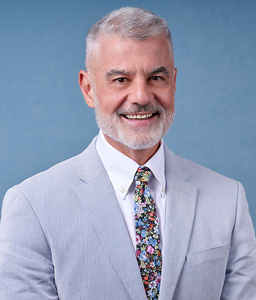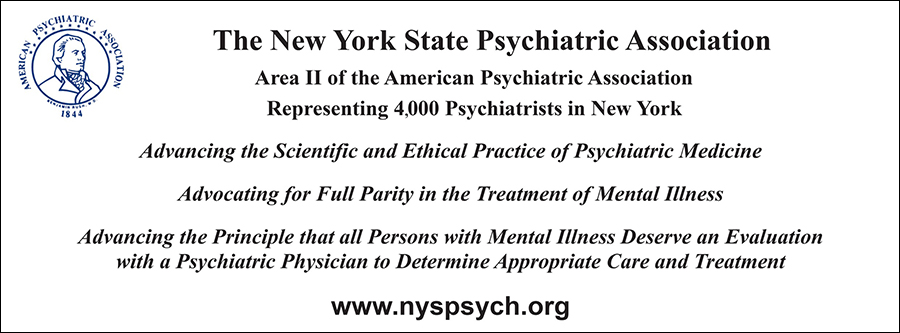The following are excerpts of an August 21, 2023, conversation with Petros Levounis, MD, current President of the American Psychiatric Association (APA). This interview has been edited for clarity.
Rachel Fernbach: First congratulations on your new position as President of the American Psychiatric Association (APA). Can you tell us a little about your presidential theme of addiction psychiatry?

Petros Levounis, MD
Dr. Petros Levounis: The APA presidential theme this year is “Confronting Addiction from Prevention to Recovery.” Preventing and treating addiction is an everyday part of our work in psychiatry, but, to my knowledge, it has never been elevated to a presidential theme and it is certainly time to put it in the forefront of our thinking. Of course, the fact that I am an addiction psychiatrist was also a key factor. As part of my presidential theme, I have chosen to focus on four distinct campaigns, one for every three months during my term. These four campaigns are (i) vaping; (ii) opioid addiction, which coincides with Recovery Month in September; (iii) alcohol addiction, which coincides with the winter holidays when many people struggle with alcohol and other substances; and (iv) technological addictions, an emerging area of addiction psychiatry, which affects many of our young people. These campaigns will be publicized using a variety of tools, including innovative animation products to be posted on social media and in other media avenues, special articles and features in Psychiatric News, and interviews with major media outlets.
I imagine these priorities were informed by your background in addiction psychiatry. Can you tell our readers a little bit about why you chose to pursue a fellowship in addiction psychiatry as part of your medical training?
When I was an undergraduate student, I majored in chemistry, which was not a popular pre-med major at the time. I chose chemistry because of my love for molecules and small things, which attracted me to organic chemistry, specifically. During medical school, I also completed a masters in sociology as I was interested in public policy and other factors that impact society. If you combine molecules and smaller things with culture, society and policy, that pretty much points directly to addiction psychiatry. Also, addiction is a psychiatric subspecialty with many connections to general medicine because intoxication syndromes and withdrawal syndromes are very close to topics in internal medicine. My father was a brilliant internist and I have always been quite attracted to the general medical side of our work.
Perhaps even more important than any of these issues are the patients themselves. I find caring for patients with addiction to be one of the most gratifying and rewarding aspects of my work. Individuals with addiction are some of the most disenfranchised and outcasted members of our society and there is so much misinformation about addiction treatment out in the world. When a patient receives quality treatment, whether through psychosocial interventions or medication interventions or both, they often do so well that the distance travelled between where the patient starts and where the patient ends is remarkable. Working with this population truly allows you to impact lives, and I have found that to be one of the most astounding aspects of my professional career.
Rachel: I think our readers would love to hear more about the APA’s anti-vaping campaign.
Dr. Levounis: There are several components to the dangers of vaping. First, many people, especially young people, do not appreciate that most vaping products contain nicotine. As we know, nicotine is one of the most addictive substances in existence. The way vaping products are advertised and marketed to young people is very misleading, particularly with respect to flavoring. A federal law was passed outlawing flavored vaping products. However, this law left a dangerous loophole which permits disposable vaping products to continue to be offered in multiple flavors. The APA is strongly advocating that flavors in all types of vaping products be prohibited. Flavored products give the image of being benign and natural, which is absolutely untrue. Using the appeal of certain flavors and scents is nothing more than a marketing ploy to lure young people to these dangerous products.
Further, vaping products are also very dangerous from a medical perspective because they contain heavy metals and other toxic substances that can result in direct tissue damage and harm. The fact that vaping products not only contain nicotine but can also cause other harm to our bodies is hugely underappreciated.
Finally, there appears to be a widespread misunderstanding that switching to vaping is a good and safe way to quit smoking cigarettes. This is simply not the case. There are plenty of other excellent FDA-approved interventions for smoking cessation, including medications (such as varenicline and bupropion), the nicotine patch, nicotine gum and other safe nicotine replacement therapies. These approved interventions, and not vaping, are the safest and best way to quit smoking.
Rachel: One of the most interesting topics you have chosen to focus on is addiction to technology. We all joke about being permanently attached to our phones and other technology, but please tell us more about this type of addiction.
Dr. Levounis: The vast majority of people who engage with technology will not become addicted to it, and there are many beneficial aspects to technology in both professional and recreational arenas. We are not trying to discourage positive use of valuable technology. However, we estimate that somewhere in the range of 3-5% of the population will end up meeting criteria for an addiction to technology. At present, addiction to Internet gaming is one of the best studied technological addictions. Technology addiction has now been included in the International Classification of Diseases and has been flagged in DSM-5-TR as a diagnosis for further study. I wouldn’t be surprised if it is officially included in DSM-6. Other concerns include addiction to cybersex, social media, internet gambling, texting, and emailing, and online auctions and shopping. Current treatment modalities for technological addictions are primarily psychosocial. At this time, there are no specific FDA-approved medications directly focused on treating technology addictions, but psychiatrists can use medications customarily used to treat co-occurring psychiatric disorders. Between one-third to two-thirds of people with technology addiction will also have another psychiatric disorder, similar to figures for substance use disorders. Expertise in substance use disorder informs our current work with patients with addiction to technology.
Rachel: Is there anything else you would like to share with readers of Behavioral Health News?
Dr. Levounis: One interesting consequence of the pandemic is how it accelerated a focus on and awareness of mental health and mental illness. Before the pandemic, organized psychiatry would scream from the rooftops about the importance of mental health and substance use disorder treatment and all of sudden we find ourselves in a different position, where the public is asking us for information, support, resources and treatment options. Suddenly, the mental health community finds itself somewhat unprepared for this barrage of excitement and interest – a truly unique moment that we need to understand and take advantage of. We strongly encourage psychiatrists to engage with the public and the APA has many resources available to every member. Psychiatrists have reliable information that should be shared. We encourage our professionals to engage with the media and the community – go to your local radio station and educate people, write an op-ed for local newspaper, post on social media. Have your voice heard.
Rachel Fernbach is the Executive Director and General Counsel of the New York State Psychiatric Association, a division of the APA. Rachel is also Chair of Mental Health News Education, the nonprofit organization that publishes Behavioral Health News and Autism Spectrum News.
References
1. The International Classification of Diseases, maintained by the World Health Organization, is the global standard and tool for diagnostic health information.
2. DSM-5-TR, published by the APA, is the current version of the standard classification of mental disorders used by mental health professionals in the United States (https://www.psychiatry.org/psychiatrists/practice/dsm).





